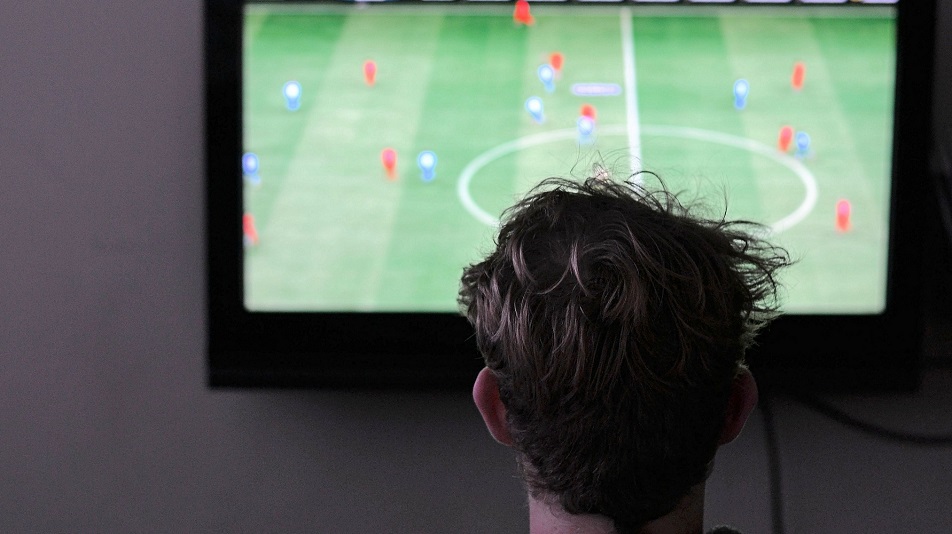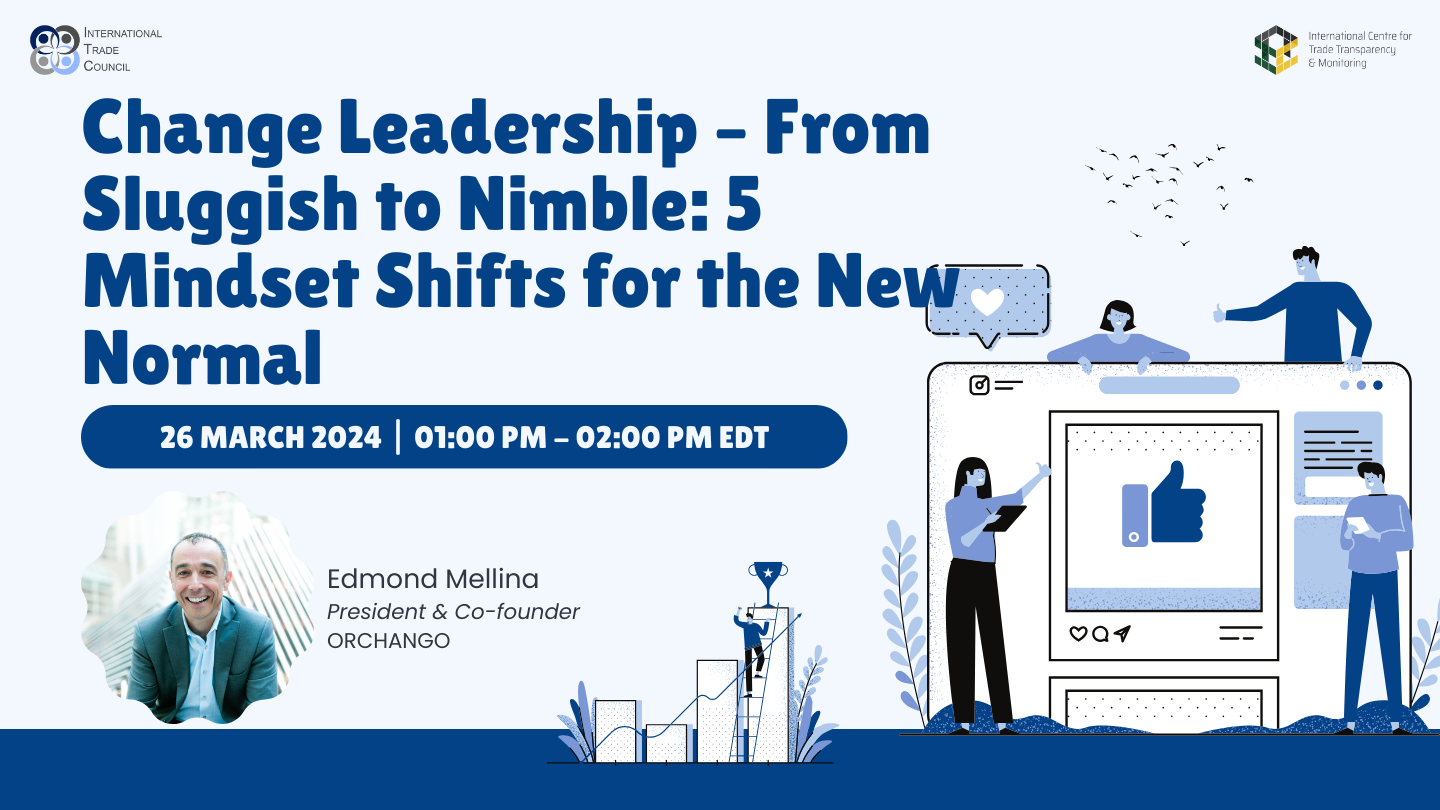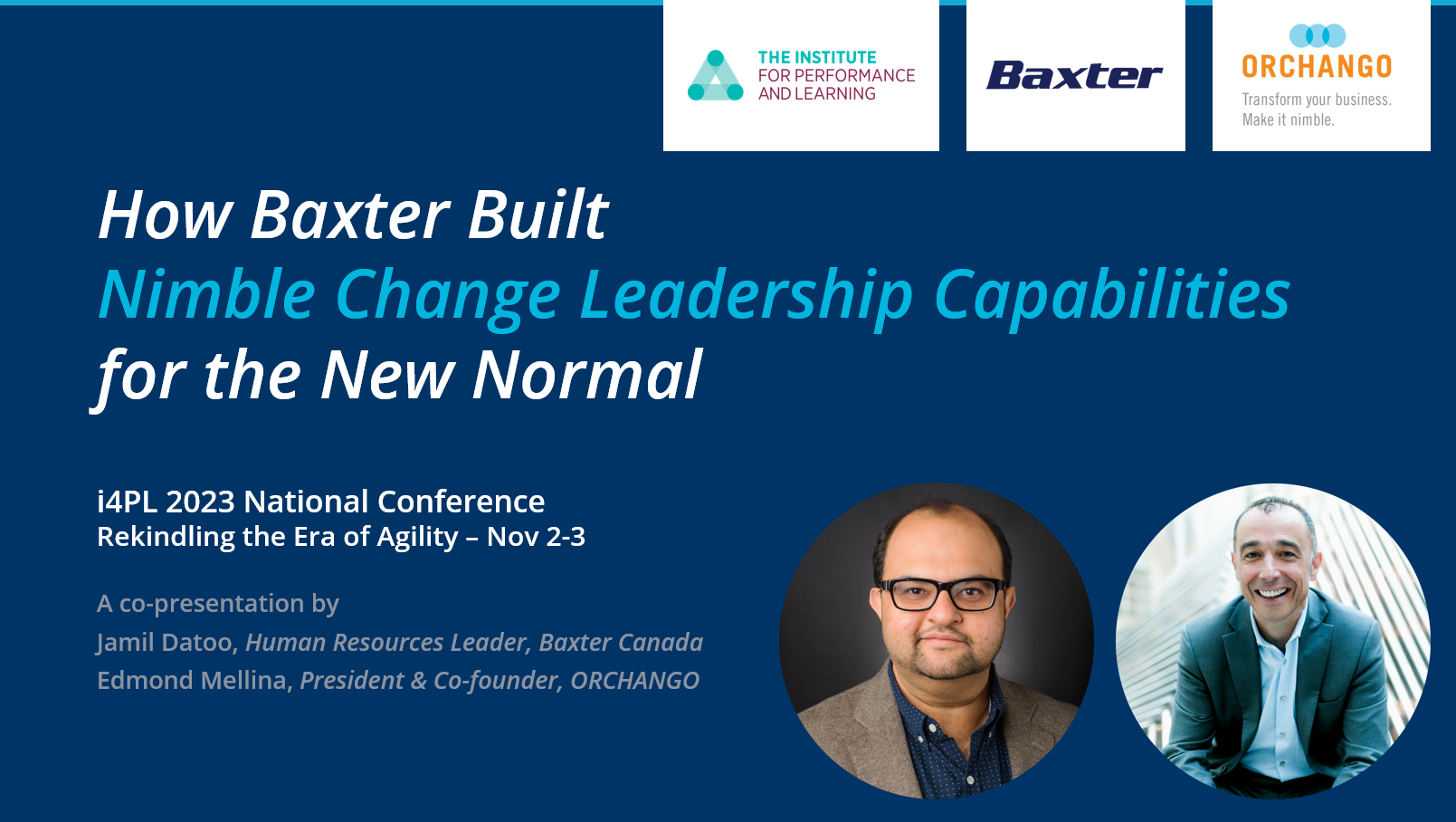When talking with C-suite executives and other transformation leaders about leading through change in the…
Leaders need to stop and reflect

In professional sports, top athletes watch video-recordings of their own games or performances. But in the corporate world, leaders are always on the go – rarely taking the time to stop and reflect. They are wasting huge opportunities to learn.
Article first written for the blog of premier US-based association HR People & Strategy (executive arm of SHRM). Also appeared on the blog of the Strategy Capability Network.
——————
The Strategic Capability Network will soon be holding a conference on the theme “Academia Meets Corporate Canada” (SCNetwork is the Canadian affiliate of HRPS). Three professors will share new insights from recent research studies about the people side of business. They will discuss the implications for Corporate Canada and its senior leaders. Each professor will be paired with a Chief HR Officer who will provide a counterpoint in the form of a “yes but” or “so what” perspective. Then, professors and CHROs will work together with the audience on extracting practical take-aways and generating ideas for future research.
I have been volunteering my time on the small committee in charge of organizing this first-ever event for the association. My first task was to speak with various professors at our local universities to identify the new research insights that would be most valuable to SCNetwork’s audience.
Mindfulness – really?
One of these conversations was with Dr Winny Shen from the University of Waterloo’s Department of Psychology. Among other things we discussed the findings of her university’s research on the topic of mindfulness.
My initial reaction was rather negative. Upon hearing the word mindfulness, I immediately thought: “Are we talking about weekend meditation retreats, like the one CNN anchor Anderson Cooper recently attended on a remote Californian mountaintop for CBC 60-Minutes? This sounds like self-help but our audience is interested in strategic capabilities!”.
Fortunately I somehow managed to push back these thoughts and focus instead on listening to what Dr. Shen had to say (which I guess was a little more mindful on my part).
Correlation: mindful leaders, better leaders
The research of Dr Shen and her colleagues has yielded very interesting insights. I can’t disclose too much here as she will speak more about it at the conference (I don’t want to steal her thunder). But she explained that the research data has shown a strong correlation between “being more mindful” and “being a better leader”.
When I asked Dr Shen about the implications for organizations, she said we need to help leaders be “more in the moment” – which includes “processing events as they happen as opposed to being always on the go, planning ahead, jumping onto the next thing… and actually missing important cues as a result”.
The discussion reinforced to me the importance of slowing down to reflect on what’s happening.
Tricking my go-go leaders to stop and reflect
During my former corporate executive career, I had the pleasure of working with truly amazing cross-functional management teams on executing complex change. These leaders tended to share key characteristics, including: a deep sense of responsibility towards the organization; an eagerness to tackle the challenge; and a strong sense of urgency.
Not surprisingly they were always on the go, which was both a good and a bad thing. We had to transform the organization while keeping its engine running, so there was no time to waste. On the other hand, as pointed out by Dr Shen, these leaders were often missing important cues – particularly regarding people’s reactions to change and the true levels of commitment or resistance. Furthermore, they were wasting huge opportunities to learn from their own and collective experience.
So I got into the habit of tricking them into stopping and reflecting. Usually it was a matter of asking open questions like:
- How do you think they feel about it? What do you think are the reasons? What would make them change their mind?
- What has worked well? What has been more challenging? What didn’t work at all? What do you think are the reasons?
- How do you feel about it?
- What are the key things you’ve learned from the experience? What will you do differently next time? What will you do the same way? Why?
The key was to do it often. For the most part I was asking these questions in a stealth, casual fashion (during project meetings; while chatting around the water cooler; during a quick exchange in an office; etc.). But once and a while, I was calling for a special meeting or retreat to stop and reflect as a team.
Over time I could see these managers grow and become more effective as change leaders. My discussion with Dr Shen the other day helped me better understand why.
Experience without reflection = wasted learning
I was reminded of the importance of stopping and reflecting shortly after leaving the corporate world to start our firm.
Our first sizable project was to help a company realign itself with its new strategy and execute the necessary change. As part of the process we trained their leadership team on our change management methodology. We enrolled the participants in a classic learning program delivered in a classroom over two consecutive days. According to the evaluations received, it was a resounding success. We were pretty happy about it and felt we had a slam-dunk of a learning program.
Well, we were so wrong… Over the following months while continuing our work with that client organization, we discovered the trained managers were actually not that good as change leaders. They were having difficulties applying the tools in the real word (if they remembered the tools at all); and they were showing poor judgement while driving change.
We uncovered three primary root causes:
- The consecutive days of learning had been too much – too many tools or too much time between learning and actual field application.
- The case studies and learning activities had been helpful, but nothing can replace the best case study ever: executing real change!
- Last but definitely not least, the leaders were missing huge opportunities to learn from their actual experience.
The saying “experience is the best teacher” is only true when people take the time to reflect on their experience in a thorough and effective manner. Otherwise, the learning is wasted. Unfortunately in today’s fast-paced, always-connected environment, leaders rarely take the time to rewind the movie.
The power of group reflection sessions
That client experience prompted me to reflect back on my earlier career. I recalled that getting my go-go managers into reflection mode was critical to their development as change leaders and to successful execution. I talked about it with my team and we concluded that we had to build a similar reflection process into our learning programs. Otherwise we would continue to be disappointed with the limited impact of traditional learning.
So we started breaking down our programs into modules. Instead of delivering them over consecutive days, we spread them out over several weeks or even months. We anchored the learning schedule to the actual timelines of the change initiatives that participating leaders had to execute. This enabled us to provide the learning in chewable, just in time chunks: focusing on the tools, mindsets and techniques participants needed to make progress on their projects over the next few weeks. We made several other changes, like turning one of our case studies into a learning game to immerse the leaders into a simulation that felt like their real world.
But the most important change was the insertion of half-day reflection sessions: at the end of each learning cycle (i.e. a couple of weeks before the next module); and at the end of the program. To guide these reflections, we asked participants to ponder the kind of questions I used to ask my go-go managers during my earlier career. They worked together on extracting insights from their collective experience. They helped each other think through what had happened; how they tackled it; what they could have done differently; the implications for the current challenges; etc.
The outcome surpassed our expectations. The participating managers started to think differently – adopting the necessary mindset to succeed as change leaders. Usually it started with just one or two leaders in the learning group. But by openly reflecting on their evolution, they encouraged the others to embark on similar development paths.
We observed increasingly better judgement from these change leaders. We saw them apply the tools and techniques effectively in the real world. We also witnessed an important culture change: leaders from different organizational silos moved away from the classic and highly damaging us-versus-them dynamics to the partners-in-change mindset that is so critical to successful execution.
These reflection sessions have become a critical feature in all our learning programs. We encourage our client organizations to continue providing their leaders with regular, quality opportunities to stop and reflect together after we are gone. And we work hard at convincing individual leaders to have the discipline to stop and reflect often – like professional athletes watching their own games.
So next time you are stuck in traffic…
The opportunities to stop and reflect are plenty. Think about it: how often do you find yourself stuck in traffic or waiting for something/someone? Like the go-go leaders, you can use that time to plan ahead; start working on the next thing; or reach out to your smartphone to send emails, post a few Tweets or place calls.
But it’s also a beautiful opportunity to stop and reflect. Don’t let it go to waste!
P.S. if you are interested in checking SCNetwork’s Academia Meets Corporate Canada event, here is the link: http://www.scnetwork.ca/default.asp?id=1046&event_id=430
Copyright © 2015 by ORCHANGO. All rights reserved. | Photo credit: ©Flickr.com/Craig Sunter
ABOUT HRPS
HR People & Strategy (HRPS) is a strategically focused, ground-breaking network of influential HR executives and innovative HRM professionals representing the world’s most prominent organizations. HRPS is regarded by many as the premier professional organization focused on the intersection of people and strategy. HRPS is affiliated with the Society for Human Resource Management (SHRM), the world’s largest HR association. www.hrps.org.




We received this comment via LinkedIn:
“Great insight Edmond! I’m sharing this article with the management team I’m working with.”
Thx Tamara. Help them stop and reflect! BTW – I’m waiting in line right now… so I’d better put my iPhone back in my pocket and do some “stop & reflect” 😉
We received this comment via LinkedIn:
“Interesting !! I Will Share this article .”
We received this comment via LinkedIn:
“Edmond, I think the perceptive practitioner gets those visual signs that a discussion point has hit a nerve and people have an uneasy feeling. So the ability to convert that to the thinking stage, beyond a passing thought, and very consciously reflect is a key skill. Maybe 101 training on “how to reflect” is now necessary today in a world of go, go, go?”
Ian, the key is indeed to move beyond the passing thought. Some kind of “101 skill training” would help. But we also need to help these leaders equate “reflect” with “personal success”. Otherwise they won’t apply the skills. Going back to the professional athletes, the reason they take the time to watch their own game is that they are convinced it’s critical to their success. Otherwise they would skip the replay-the-game sessions; instead they would practice, stretch or hit the gym to pump some iron – in a go-go-go fashion.
You might want to check this article by INSEAD Prof Kets de Vries, which adds the notion of “subconscious thought” to the above post. I also liked the quote it starts with: “Learning without reflection is a waste, reflection without learning is dangerous” – Confucius
http://knowledge.insead.edu/talent-management/the-importance-of-doing-nothing-3422